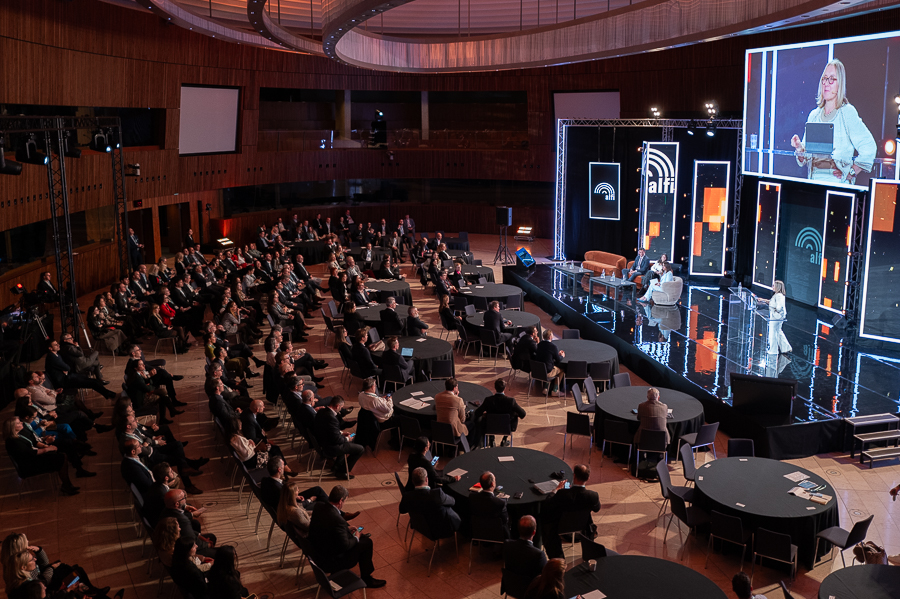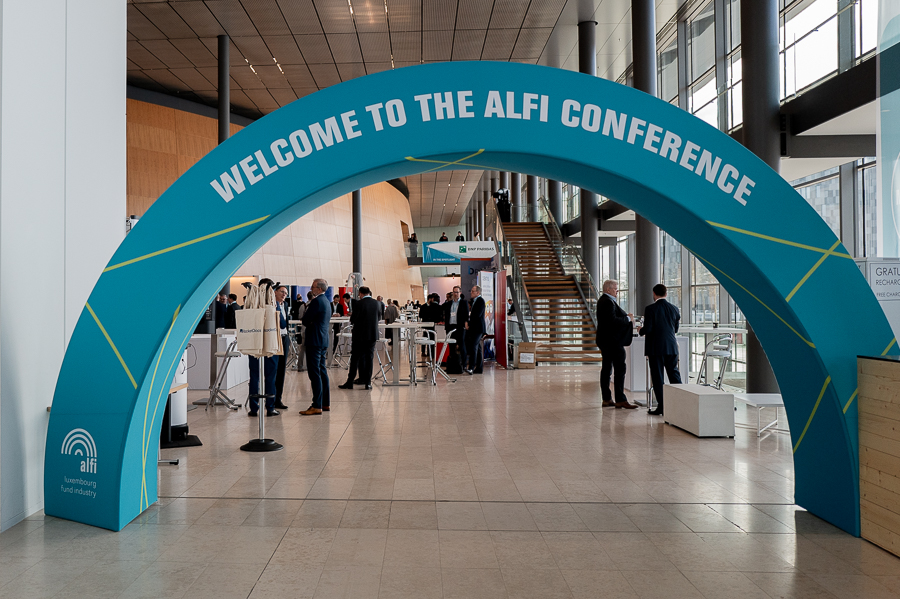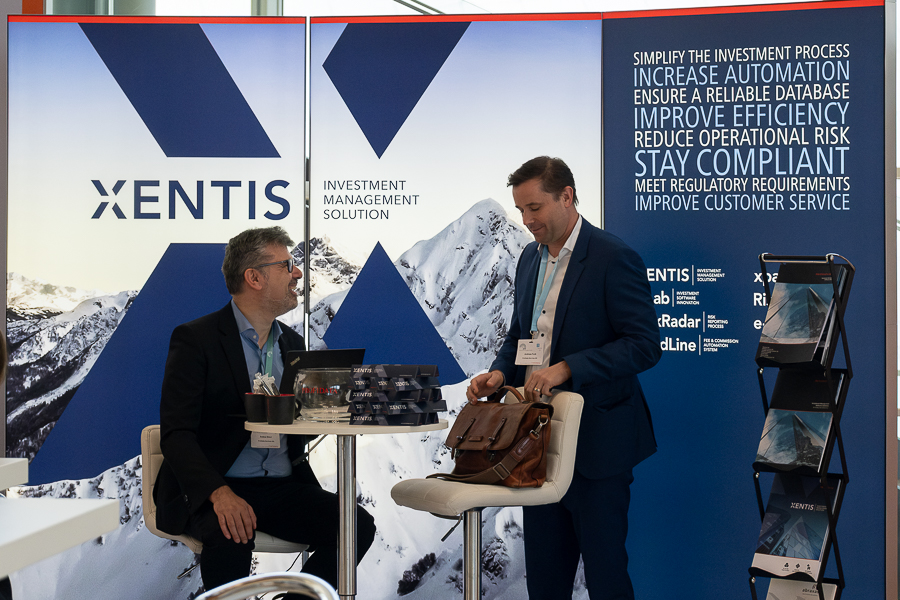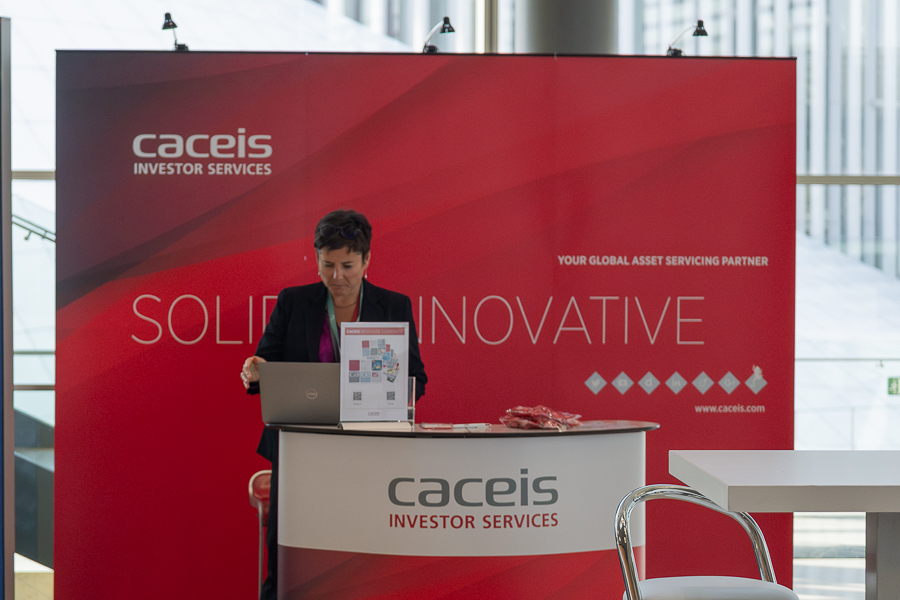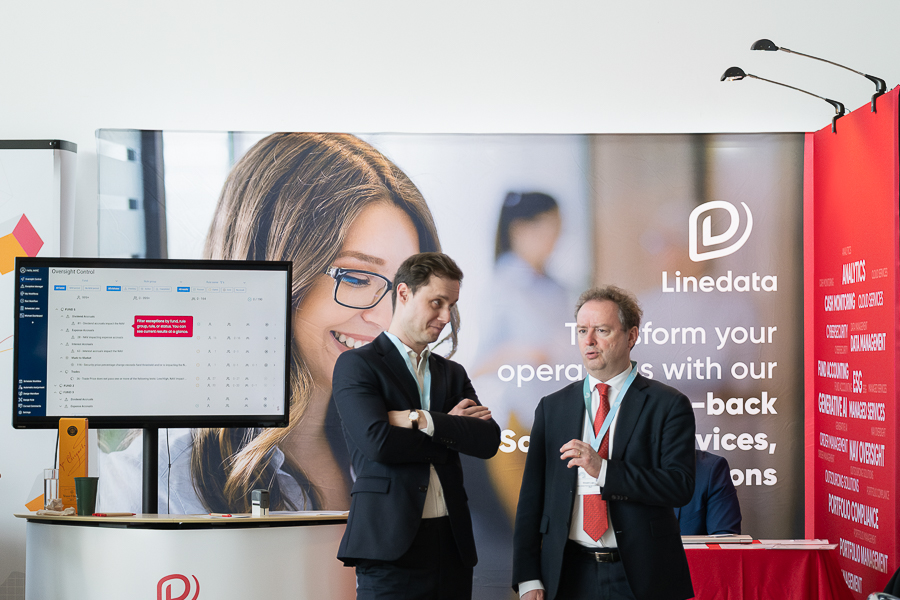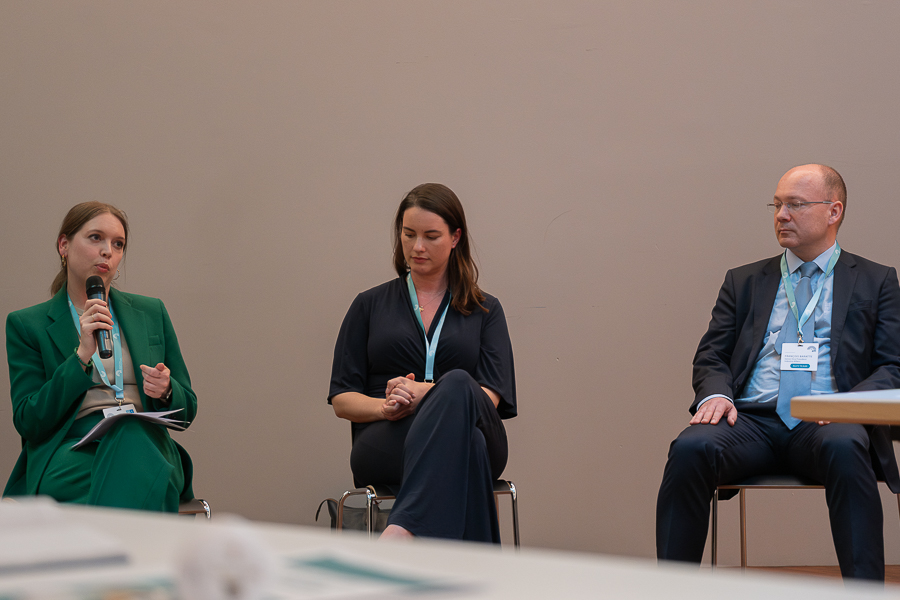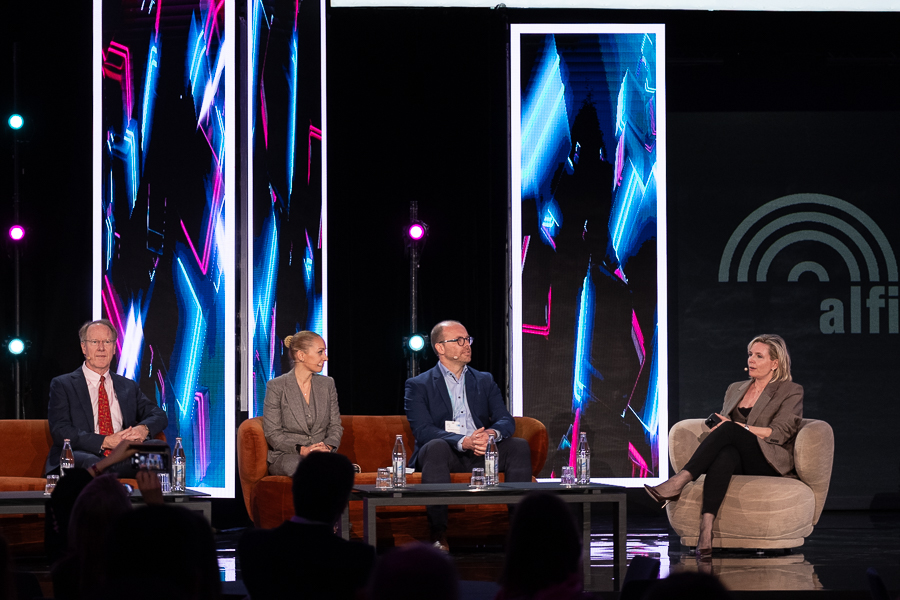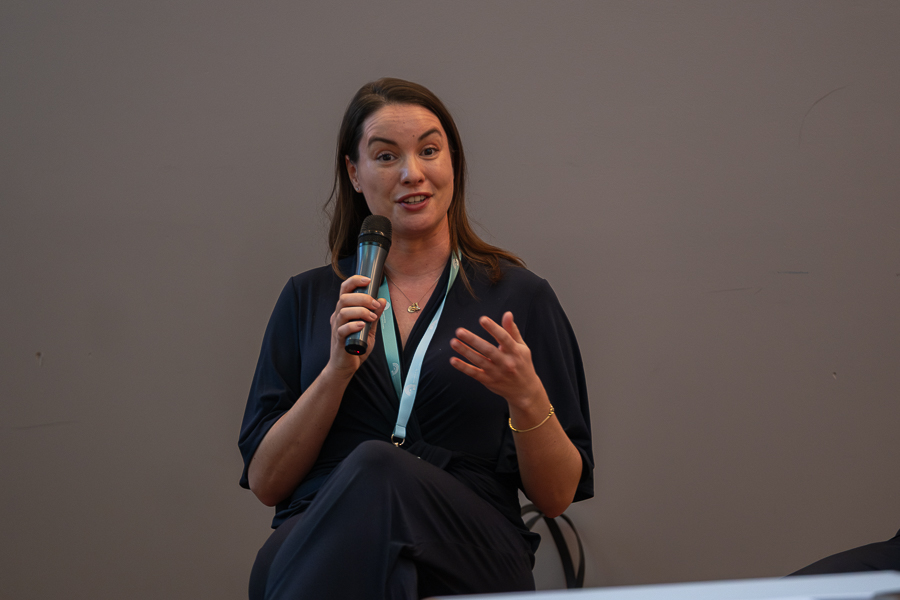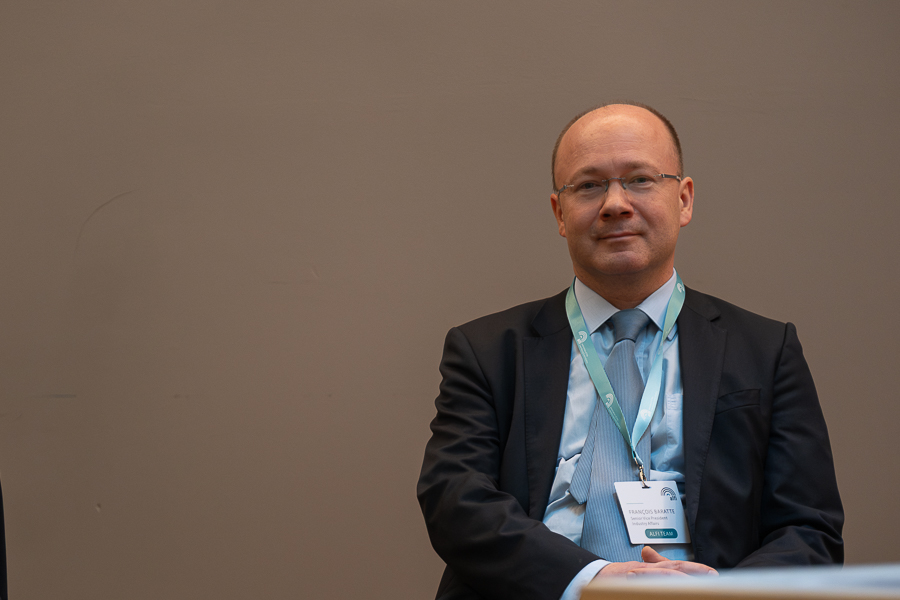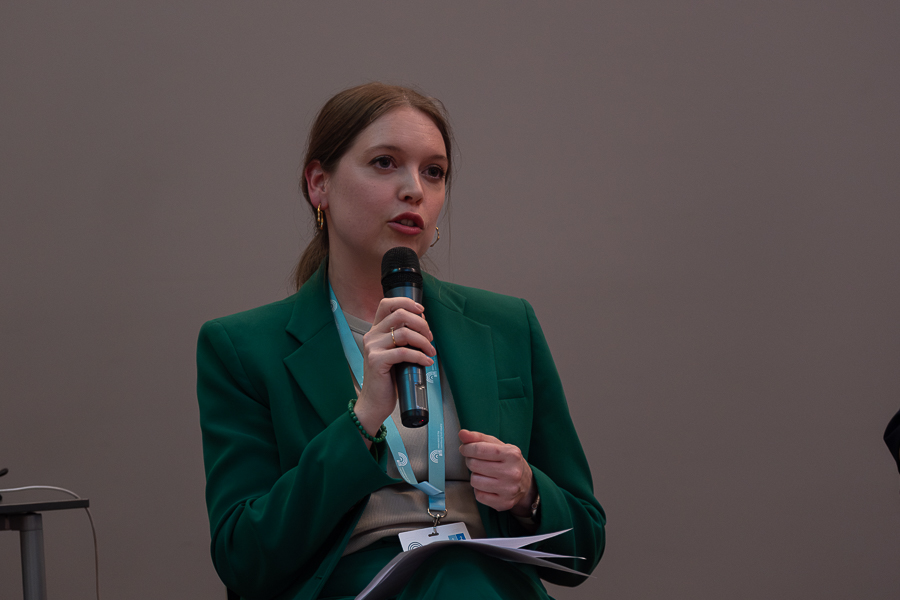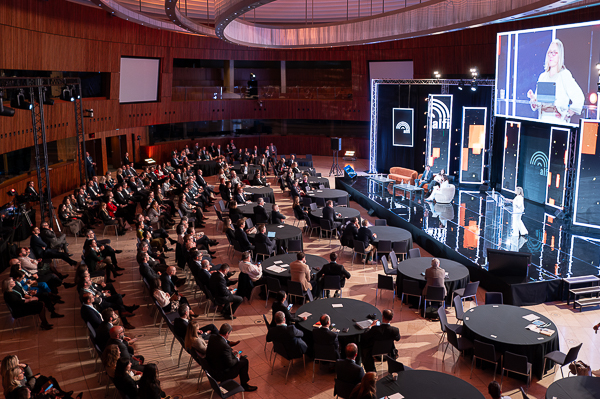 Credit: Ali Sahib, Chronicle.lu
Credit: Ali Sahib, Chronicle.lu
On Tuesday 25 March 2025, the Association of the Luxembourg Fund Industry (ALFI) held its Global Asset Management Conference (GlobAM) at the European Convention Centre in Luxembourg-Kirchberg.
The annual two-day conference, which attracts fund professionals from across Europe, saw several hundred in attendance on the first day, with a trade exhibition featuring investment firms and fund partners held in the foyer of the European Convention Centre. Subjects covered during the event included the impact of artificial intelligence (AI), blockchain and fund tokenisation, exchange-traded funds (ETF), emerging markets and gender finance.
After an opening introduction from ALFI Chairperson, Jean-Marc Goy, Luxembourg’s Minister of Finance, Gilles Roth, delivered a keynote speech which highlighted the attractiveness of Luxembourg’s financial sector through its stability, connectivity to emerging markets and the country’s innovative approach to providing technological solutions, highlighting the Luxembourg government’s recent announcement of €300 million in funding dedicated to financing startups and funding innovation in Luxembourg.
The conference then continued with a series of sessions and panel discussions, involving representatives from across the financial industry, which concentrated on the vision for Luxembourg’s financial sector, the launch of Franklin Templeton’s first fully tokenised UCITS fund in Luxembourg, the impact of AI on the fund and finance industries, the rise in popularity of exchange-traded funds and emerging investment opportunities in Brazil.
During an afternoon press conference, International Legal Lead of Digital Projects at Franklin Templeton, Catriona Kellas, presented further details of how the investment management company introduced the first fully tokenised UCITS fund of its kind in Luxembourg, providing details of the regulatory challenges and the benefits behind the utilisation of blockchain technology in the financial industry. In describing the use of blockchain technology, Ms Kellas said: “We see the efficiency, the speed with which transactions can be recorded, the speed with which clients can exchange their tokens, issue their tokens. We’ve also got traceability and transparency and precision on there, which I think are important benefits.” She added: “The crucial point when we're talking about what the fund actually does is that it is a traditional money market fund. It does not invest in crypto-assets, so it simply uses the blockchain technology to deliver all of the benefits.”
Director for the Development of the Financial Sector at Luxembourg’s Ministry of Finance, Jennifer de Nijs, then delivered a presentation on Gender Finance, where she detailed existing biases in the finance industry related to employment, personal development, fund structure, management and marketing. She also explained how Luxembourg is leading in Europe in gathering data on this subject. In discussing the ministry’s involvement, Ms de Nijs said: “We launched the Women in Finance Charter under the patronage of the Minister of Finance with the aim of finding out the data. How many women did we have in leadership positions and what can we do to increase this number.” She continued: “The charter's aim is quite simple. It is to collect as many signatories of the financial centres or companies as possible. They each set targets to increase female representation at board level, senior level, but also management positions and, most importantly, report about them every year. This reporting is being done by the Luxembourg Sustainable Finance Initiative.”
Subsequently, Managing Partner at independent research and consulting provider ETFGI, Deborah Fuhr, gave a presentation on the trends and outlooks for exchange-traded funds in Europe, providing details of the growth in the ETF market over the past ten years and highlighting the product’s transparency and flexibility, its growing attractiveness in Europe and the future adoption of tokenisation.
The first day’s events were followed by an evening cocktail reception for attendees.
The conference continues into its second day on Wednesday 26 March 2025.
SM


